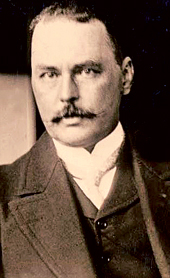 |
| Ronald Ross |
Calcutta on Thursday won the bragging rights for Ronald Ross’s discovery of “mosquito as the malaria vector”, thanks to an aspiring schoolteacher who had moved court after being denied one crucial mark in a recruitment exam.
Justice Biswanath Somadder of Calcutta High Court directed the West Bengal Board of Primary Education to award one mark to everyone who had chosen “Calcutta” as the answer to the question in the 2012 School Service Commission test paper: “In which city did Sir Ronald Ross discover that mosquito is the malaria vector?”
The ruling was based on the findings of a committee set up by the National Library on the high court’s orders. Before the verdict came, the answer officially deemed correct — and mentioned on the board’s website — was Secunderabad.
Candidates in the 2012 teacher eligibility test had been given four cities to pick from as the answer to the question on Ross in the general knowledge section: Calcutta, Secunderabad, Allahabad and Chennai.
The candidate whose petition later prompted the high court to revisit history had picked Calcutta, sure that his was the correct answer. When he fell short of the qualifying score of 60 by just one mark, the young man decided to challenge the board.
On July 3, Justice Somadder asked the National Library to form a panel to research the topic and report back with the correct answer. The team took two weeks to go through books, journals and papers available at the Alipore institution and glean the information that went into the 10-page report submitted in court.
P.Y. Rajendra Kumar, the director general of the National Library, told Metro: “Based on records available at the National Library, some of our officials researched and submitted a report to the court quoting all the documents and statements gathered from old newspapers and journals.”
Justice Somadder’s order said the candidates who had picked Calcutta from the four choices should be given one mark each while being sympathetic towards those who had had chosen Secunderabad and gone on to become teachers. “They should be allowed to continue in service,” the court said.
Sources said around 400 candidates who had fallen short of the cut-off by a mark would benefit from the order. But a senior official said the board was “confident” that Secunderabad was the right pick and would challenge the ruling.
The National Library had submitted its 10-page report, based on excerpts from Ronald Ross’s diaries, memoirs and journals of his time, in a sealed cover about a week ago. A copy of the report was sent to the board, a source said.
The board promptly submitted an affidavit stating its doubts about the National Library’s findings.
“On examining the report, we found that it does not prove that Secunderabad is not the right answer to the question. We consulted experts on Ross and they are not satisfied with the documents that the panel has referred to. We have appended to the affidavit all the documents which confirm that Secunderabad is the right answer,” a source said.
Manik Bhattacharya, the board’s president, said: “We cannot comment on the judgment as we have yet to receive a copy of it.”
According to an official who didn’t wish to be named, the board was not satisfied with the National Library’s research because it was done by “a set of people who are in charge of the archives” rather than experts in the field.
“On the other hand, the moderators and the paper setters for our test are experts in the field. They decided that Secunderabad is the correct answer after extensive research,” he said.
The four main sources of the National Library’s research included Ronald Ross’s mentor Patrick Manson’s Tropical Diseases: A Manual of the Diseases of Warm Climates, published in 1903. The second was Memoirs, with a full account of the “great malaria problem” and its solution by Ronald Ross, published in 1923. The other two sources were a paper on “Some Peculiar Pigmented Cells Found in Two Mosquitoes Fed on Malarial Blood”, from the British Medical Journal dated December 18, 1897, and Researches on Malaria: Being the Nobel Medical Prize Lecture for 1902, published in 1904.
The assistant librarian who did the research said: “We started with a general report based on resources relevant to Ronald Ross’s protracted and relentless research lasting three years — April 1895 to July 1898, in Secunderabad and Calcutta — to throw light on the debated matter.”
The report states that Ross was in Secunderabad when he discovered that malaria parasites could live and grow in the stomach wall of a mosquito. Later, in Calcutta, he discovered that the parasites pass to the salivary glands of the mosquitoes, which carry them from one host to another through bites — “man from the mosquito and into the mosquito from man”.










